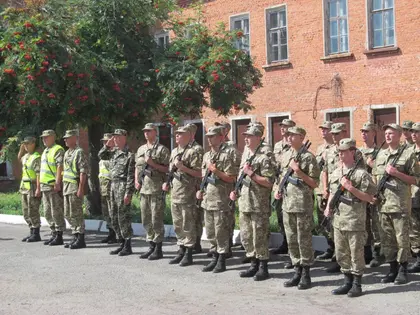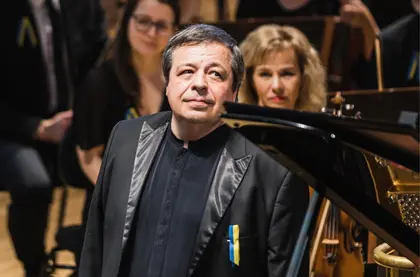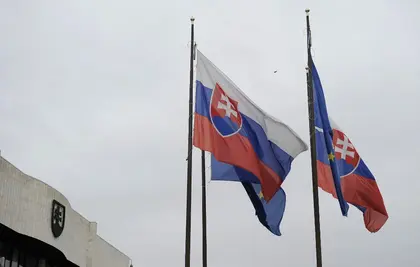Ukraine’s Military Law Enforcement Service is to be reformed into a new military police service in 2017, Major-General Ihor Kryshtun, the acting head of the service, said during a briefing on April 11.
According to Kryshtun, a draft bill on the reform has been drawn up, and was on March 21 submitted to Ukraine’s Ministry of Justice for a legal assessment.
Kryshtun said that under the new legislation, the military police would get the powers, functions and judicial status detailed in the country’s Strategic Defense Bulletin, which was signed by President Petro Poroshenko in June 2016. The Strategic Defense Bulletin stipulates that Ukraine’s armed forces are to сomplete their adoption of NATO standards by 2020.
“We hope that the Verkhovna Rada (Ukraine’s parliament) will consider this matter this year,” Kyshtun said.
Created in 2002 as a law protection body in Ukraine’s armed forces, the Military Law Enforcement Service has 700 personnel deployed to the war zone in eastern Ukraine. However, due to flawed and incomplete legislation, the service acts more as a crime-prevention body, the major-general said. In contrast, a reformed military police would able to carry out pretrial inquiries into crimes committed by armed forces personnel, and perform other investigative functions, Kyshtun said.
Need for reform
“Some cases need military competence for investigation. This is very important, considering that the armed forces are involved in active combat,” Kyshtun said. “Besides, the question of restoring military courts is being raised now.”
The issue of restoring Ukraine’s military courts, which were abolished in ousted former President Viktor Yanukovych’s infamous judicial reforms of 2010, emerged after a civilian court in the city of Pavlograd convicted the Ukrainian army’s Major-General Viktor Nazarov to seven years of imprisonment on March 27.
The court found the high-ranking military officer guilty of negligence that led to the deaths of 40 Ukrainian paratroopers and nine crew when a Il-76 airlifter was downed by Russian-backed militants over a Luhansk airfield in June 2014.
Despite the fact that the court’s verdict was based on a high-profile military aviation expert inquiry, many army officers expressed discontent that Nazarov was convicted by a civilian court, including Ukraine’s defense minister, General Stepan Poltorak, and the chief of the Ukrainian general staff, General Viktor Muzhenko.
Poroshenko on March 29 announced plans to restore special military courts to try armed forces personnel. According to Kyshtun, the reformed military police would form the law enforcing and pre-trial investigative component of the military judicial system of Ukraine.
Under the influence
During 2017, the Military Law Enforcement Service managed to reduce the number of crimes among military personnel by 23 percent, Kyshtun said. The number of non-combat casualties (deaths, or injuries that meant a soldier could no longer serve) fell by 37 percent, he said.
Military law enforcers are mainly engaged in preventing the illegal sale of military hardware, explosives, and munitions in the Donbas war zone. In cooperation with local police forces, the service inspects public transport stations, checkpoints, railway carriages and post offices to search for weapons smuggled from the zone.
According to Kyshtun, up to 65 criminal cases have been opened on weapons smuggling.
Military law enforcers have also cracked down on alcohol consumption by servicemen in the war zone – one of the principal factors behind crimes committed by servicemen against both civilians and their fellow soldiers, and also for non-combat casualties, including fatalities.
Under new legislation approved by the Verkhovna Rada in March, penalties on Ukraine’s armed forces personnel for alcohol-related crimes were increased, and the number of such incidents has fallen, Kyshtun said. Besides, since 2015 all alcohol sales to Ukrainian servicemen on duty were prohibited in the war zone.
Up to 60 soldiers were dismissed from military service for criminal activities in 2016, including three servicemen involved in an extortion ring in the town of Volnovakha in Donetsk Oblast.
You can also highlight the text and press Ctrl + Enter







Comments (0)